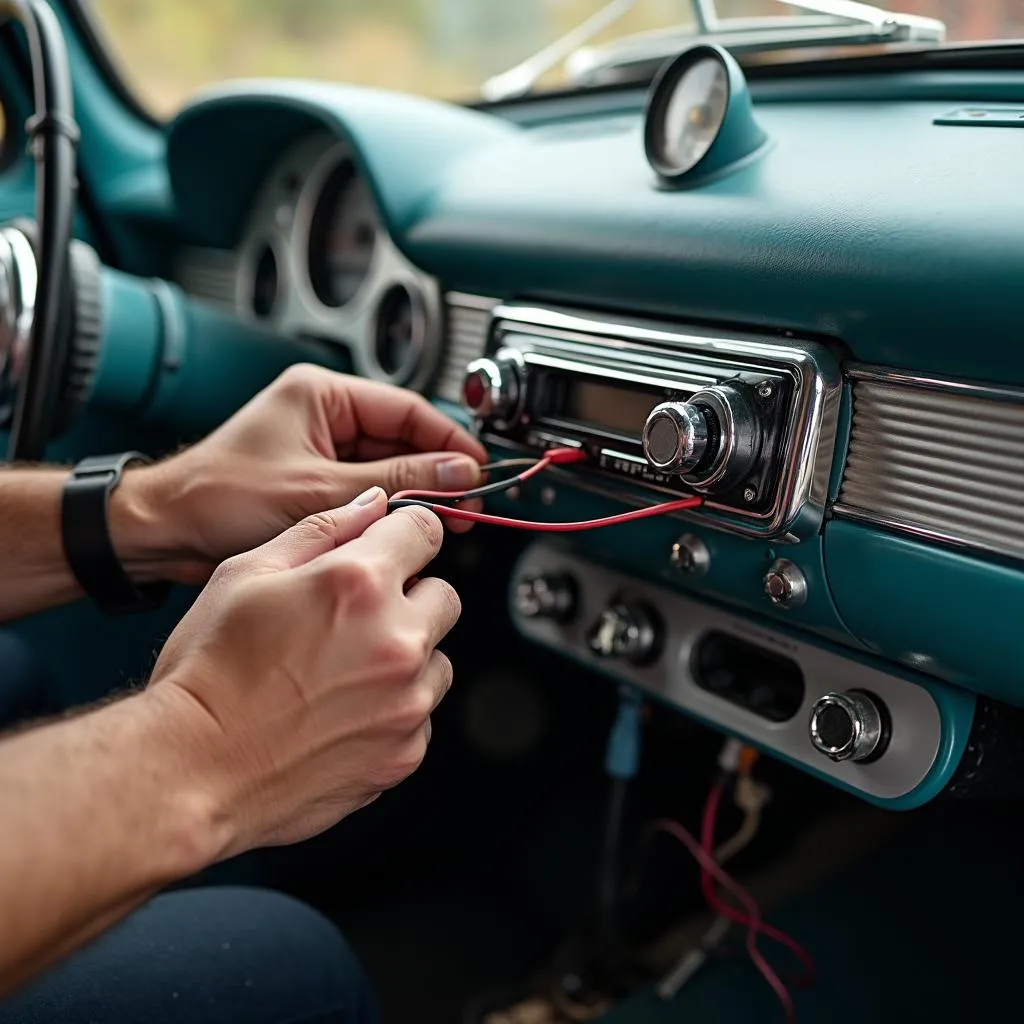Experiencing a dead battery while driving is a frustrating and potentially dangerous situation. Understanding why this happens and knowing how to troubleshoot and prevent it is essential for every driver. This article provides comprehensive guidance on addressing the issue of a “battery died while driving.”
my car battery died while driving
A car battery’s primary function is to start the engine. Once the engine is running, the alternator takes over, powering the electrical systems and recharging the battery. If your battery dies while driving, it indicates a problem beyond a simply old or weak battery.
Why Did My Battery Die While Driving?
Several reasons can cause your car battery to die mid-drive. Identifying the root cause is crucial for implementing the right solution. Common culprits include a failing alternator, loose or corroded battery connections, parasitic drains, and excessive electrical load.
The Alternator: The Heart of Your Car’s Electrical System
The alternator is responsible for recharging the battery while the engine is running. A malfunctioning alternator won’t charge the battery, leading to depletion and eventual failure while driving. Signs of a bad alternator include dimming headlights, flickering dashboard lights, and unusual noises coming from the engine compartment.
Loose or Corroded Battery Connections: A Silent Culprit
Loose or corroded battery terminals can disrupt the flow of electricity between the battery and the electrical system. This can lead to inadequate charging and ultimately cause the battery to die while driving. Regularly inspecting and cleaning your battery terminals can prevent this issue.
Parasitic Drains: The Energy Vampires
A parasitic drain refers to a constant drain on the battery even when the car is off. This can be caused by faulty wiring, malfunctioning electrical components, or even aftermarket accessories left on. Identifying and eliminating parasitic drains is crucial for preserving battery life.
Excessive Electrical Load: Overpowering Your System
Running too many electrical accessories simultaneously, such as the headlights, air conditioning, radio, and heated seats, can strain the alternator and deplete the battery faster than it can recharge. Be mindful of your electrical usage, especially on older vehicles.
What to Do When Your Battery Dies While Driving
If your car battery died while driving, try to pull over to a safe location immediately. Turn off all non-essential electrical accessories to conserve whatever power is left. Try restarting the car. If it starts, drive directly to a mechanic or auto parts store for diagnosis and repair.
Troubleshooting Tips
- Check the battery terminals for looseness or corrosion.
- Inspect the alternator belt for damage or slippage.
- Listen for unusual noises from the alternator.
Preventing Future Battery Failures
Regular maintenance is key to preventing future battery failures. This includes:
- Having your battery and alternator tested regularly.
- Cleaning battery terminals to prevent corrosion.
- Minimizing parasitic drains by addressing faulty wiring and turning off accessories when not in use.
“Regular battery and alternator checks are crucial for preventing unexpected breakdowns,” says John Smith, Senior Automotive Technician at Smith Auto Repair. “It’s a small investment that can save you a lot of hassle in the long run.”
Conclusion
A battery loses charge overnight or while driving signals an underlying problem within the electrical system. By understanding the common causes and following the troubleshooting tips outlined in this article, you can effectively address the issue and prevent future occurrences. Don’t delay in seeking professional help if you experience a dead battery while driving.
FAQ
-
Can a bad alternator cause my battery to die while driving? Yes, a faulty alternator won’t recharge the battery, eventually leading to its depletion.
-
How often should I check my battery terminals? It’s recommended to check your battery terminals at least once a month for corrosion or looseness.
-
What are signs of a parasitic drain? A car that is difficult to start or a battery that frequently dies can indicate a parasitic drain.
-
How can I prolong the life of my car battery? Regular maintenance, including cleaning terminals and minimizing parasitic drains, can extend battery life.
-
What should I do if my battery dies while driving? Pull over to a safe location, turn off non-essential accessories, and seek professional help.
-
Can extreme temperatures affect battery life? Yes, both extreme heat and cold can shorten the lifespan of a car battery.
-
Is it safe to jump-start a car with a completely dead battery? Yes, but follow proper jump-starting procedures to avoid damage to the electrical systems. A 2015 chrysler 200 key fob battery can also die sometimes, but that’s a different issue altogether.

